
Data from the registry suggested that in patients with cancer and COVID-19, cancer that is progressing was independently associated with an increased risk of death.

Your AI-Trained Oncology Knowledge Connection!


Data from the registry suggested that in patients with cancer and COVID-19, cancer that is progressing was independently associated with an increased risk of death.

The expert explained how states that expanded Medicaid coverage saw a steeper decline in cancer mortality rates, and next steps for further evaluation.

The expert oncologist discussed the findings of the COVID-19 and Cancer Consortium and how the results of the consortium should inform conversations with patients with cancer.

In a recent interview with CancerNetwork, Fumiko Chino, MD, discussed the need to evaluate Medicare’s impact on cancer mortality rates, and moreover, what she and her colleagues found in a recent study presented at the 2020 ASCO Virtual Program.

As the national opioid crisis has created new challenges in pain management, cancer survivors are in need of non-pharmacological options.
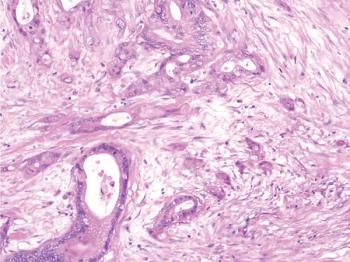
An investigational PD-L1 PROBODY therapeutic, CX-072, demonstrated durable responses and appeared tolerable in patients across multiple tumor types.
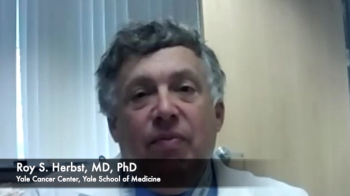
Roy S. Herbst, MD, PhD, presented a late breaking abstract on behalf of his colleagues regarding the ADAURA trial, which analyzed osimertinib as an adjuvant therapy to treat patients with non-small cell lung cancer.
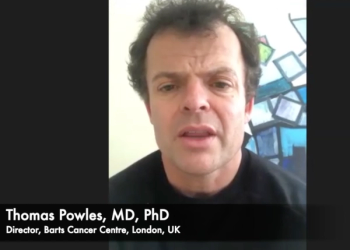
The expert from Barts Cancer Centre in London discusses future directions for avelumab and the rapidly advancing field of urothelial cancer.

Germline analysis in patients with advanced cancer may play an important role in selecting FDA-approved treatments and clinical trial participation with germline-targeted therapeutics.

Roy S. Herbst, MD, PhD, of the Yale Cancer Center discussed his key takeaway from the phase III ADAURA trial regarding osimertinib as adjuvant therapy to treat NSCLC presented at the 2020 ASCO Virtual Scientific Program.
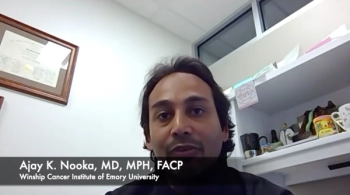
Ajay K. Nooka, MD, MPH, FACP discussed the clinical benefits of belantamab mafodotin in combination with bortezomib/dexamethasone to treat multiple myeloma.

The expert from the Centre Hospitalier Lyon-Sud discussed the results of a phase II study of avelumab for patients with GTT who were resistant to chemotherapy.
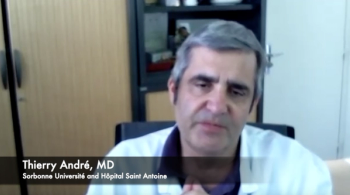
The findings, presented at the 2020 ASCO Virtual Scientific Program, are the first to show benefit with pembrolizumab in patients with advanced colorectal cancer when used as a front-line therapy.

Data from the COVID-19 and Cancer Consortium registry, presented at the 2020 ASCO Annual Virtual Science Program, reported how the COVID-19 pandemic has impacted patients with cancer thus far.

Utilizing data from the INFORM registry, researchers were able to identify high level priority targets in pediatric patients with cancer utilizing an algorithm that matched them to targeted treatments extending their progression-free survival time and showing the feasibility of this program in a real-world setting.

Women who present with a new diagnosis of breast cancer already in stage IV should not be offered surgery and radiation for the primary breast tumor with the expectation of a survival benefit, according to results from the ECOG-ACRIN E2108 trial.

Disease progression and treatment with hydroxychloroquine and azithromycin were associated with increased all-cause 30-day mortality in patients with cancer compared to patients either in remission or with no evidence of disease, according to data presented during a 2020 ASCO Virtual Scientific Program press briefing.
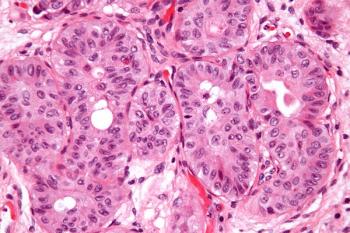
Immunotherapy with avelumab improved survival when given as maintenance therapy in patients whose disease did not progress on platinum-based chemotherapy.

Front-line therapy with pembrolizumab doubled progression-free survival versus chemotherapy in patients with microsatellite instability-high or mismatch repair deficient metastatic colorectal cancer.

The phase II study was the first trial to explore the use of immunotherapy for patients who were resistant to standard chemotherapy treatment

The use of video conference technology significantly reduced anxiety and stress among individuals who provide care for an individual with cancer and live more than 1 hour away from the patient.

States that expanded Medicaid coverage saw a steeper decline in cancer mortality rate, compared to those that didn’t follow the passage of the Affordable Care Act (ACA) of 2010.

Researchers showed that integration of a comprehensive geriatric assessment with geriatrician-led management care improved quality of life for older adults with cancer.

The 2019 American Society of Clinical Oncology (ASCO) Annual Meeting, which took place May 31–June 4 in Chicago, drew more than 32,000 oncology specialists from around the world.

A same-day biopsy program for women helped reduce disparities related to age, race, and insurance type in breast cancer care.

Researchers tested the MET inhibitor capmatinib in patients with non–small-cell lung cancer and a MET exon 14 skipping mutation.

Lurbinectedin may represent a new treatment option as second-line therapy for patients with small-cell lung cancer.
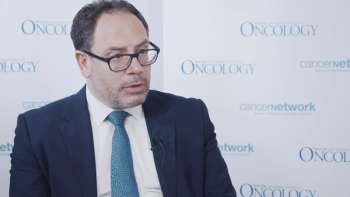
Cancer Network spoke with Adi Diab, MD, of MD Anderson Cancer Center, on the link between baseline tumor immune signatures and response to bempegaldesleukin and nivolumab in patients with advanced solid tumors.
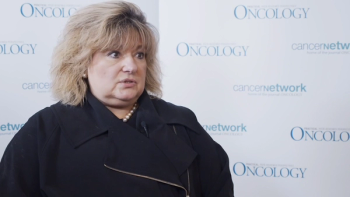
Cancer Network spoke with Anna Pavlick, MD, of NYU Langone Health, on the results of a phase II study of poly-ICLC matured dendritic cells for NY-ESO-1 and Mean-A peptide vaccination compared with Montanide.

Cancer Network spoke with Paul B. Chapman, MD, of Memorial Sloan Kettering Cancer Center, about pursuing adjuvant immunotherapy for patients with melanoma.